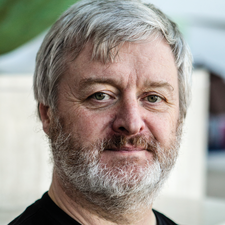The Linux Voice view on what's going on in the world of Free Software.
News Analysis

Open source communities need equal rights.
Opinion
The Universal Donor
A few people reacted negatively to my article on why Public Domain Software (PDS) is broadly unsuitable for inclusion in a community open source project. Most argued that because public domain gave them the rights they need where they live (mostly the USA), I should not say it was wrong to use it.
That demonstrates either parochialism or a misunderstanding of what public domain really means. It should not be used for the same reason code known to be subject to software patents should not be used – namely that only code that, to the best efforts possible, can be used by anyone, anywhere, without the need to ask permission (e.g., by buying a patent license) or to check if it's needed (e.g., is that PDS code public domain here?) to be used in an open source project. Public domain fails the test for multiple reasons: global differences in copyright terms, copyright as an unalienable moral rather than as a property right, and more.
Yes, public domain may give you the rights you need. But in an open source project, it's not enough for you to determine you personally have the rights you need. In order to function, every user and contributor of the project needs prior confidence that they can use, improve, and share the code, regardless of their location or the use to which they put it. That confidence also has to extend to their colleagues, customers, and community as well.
[...]
Buy this article as PDF
(incl. VAT)
Buy Linux Magazine
Subscribe to our Linux Newsletters
Find Linux and Open Source Jobs
Subscribe to our ADMIN Newsletters
Support Our Work
Linux Magazine content is made possible with support from readers like you. Please consider contributing when you’ve found an article to be beneficial.

News
-
Parrot OS Switches to KDE Plasma Desktop
Yet another distro is making the move to the KDE Plasma desktop.
-
TUXEDO Announces Gemini 17
TUXEDO Computers has released the fourth generation of its Gemini laptop with plenty of updates.
-
Two New Distros Adopt Enlightenment
MX Moksha and AV Linux 25 join ranks with Bodhi Linux and embrace the Enlightenment desktop.
-
Solus Linux 4.8 Removes Python 2
Solus Linux 4.8 has been released with the latest Linux kernel, updated desktops, and a key removal.
-
Zorin OS 18 Hits over a Million Downloads
If you doubt Linux isn't gaining popularity, you only have to look at Zorin OS's download numbers.
-
TUXEDO Computers Scraps Snapdragon X1E-Based Laptop
Due to issues with a Snapdragon CPU, TUXEDO Computers has cancelled its plans to release a laptop based on this elite hardware.
-
Debian Unleashes Debian Libre Live
Debian Libre Live keeps your machine free of proprietary software.
-
Valve Announces Pending Release of Steam Machine
Shout it to the heavens: Steam Machine, powered by Linux, is set to arrive in 2026.
-
Happy Birthday, ADMIN Magazine!
ADMIN is celebrating its 15th anniversary with issue #90.
-
Another Linux Malware Discovered
Russian hackers use Hyper-V to hide malware within Linux virtual machines.

